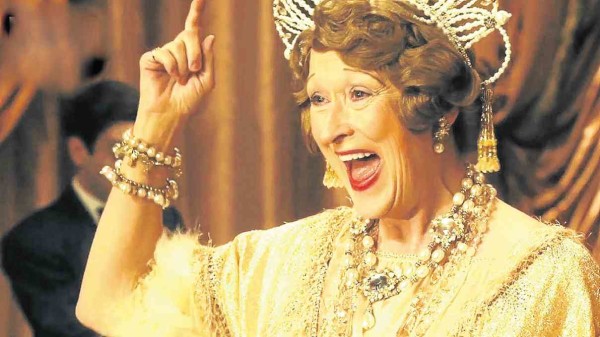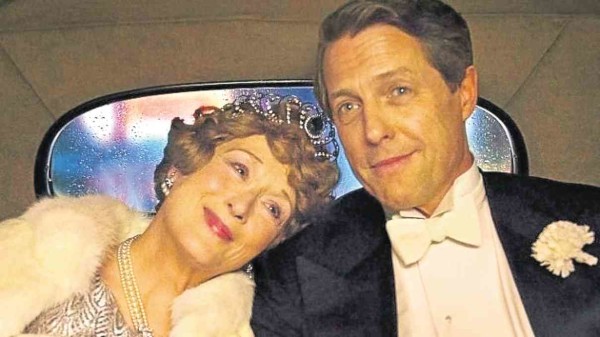What can’t Meryl Streep do? Nothing—and she proves this once again in her Oscar-worthy portrayal of American socialite Florence Foster Jenkins, in Stephen Frears poignant period “dramedy,” “Florence Foster Jenkins.”
The film follows the musical “misadventures” of the soprano wannabe—portrayed to “atrocious” perfection by the sublime Streep—who was as artistically guileless as she was clueless about her inability to carry any tune she attempted to sing.
Make sure you make a beeline for the box office when the movie opens next week, Aug. 24—and see for yourself why Streep is without a doubt the greatest actress of her generation:
The iconic performer is exceptional even when she’s supposed to be execrable—so she should make room for another golden statuette in her ever-expanding collection when the award-giving season begins any time now.
Blissfully unaware of how terrible she was, Florence, often “celebrated” as the worst opera singer ever, seized every chance she got to “entertain” her audience—but, each performance became an occasion to “confound” them with her croaking, bleating and shrieking bravado, by way of a “medical science-defying” voice that was once described by a New York Post critic as the most pain-inducing sound he’s ever heard!
Jenkins’ well-meaning enablers included her husband, St. Clair Bayfield (the appropriately cast Hugh Grant), her pianist Cosme McMoon (Simon Helberg, also award-worthy), the seasoned voice coach who kept telling her that she “never sounded better,” and the polite concertgoers who were often the beneficiaries of her generous donations!
What Jenkins lacked in talent, she more than made up for with her ambition and never-say-die spirit. She couldn’t sustain a note to save her life, but she had the gutsy drive—and gazillions of dollars—to make her dreams come true!
By imbuing her character with dramatic perspicacity and heartbreaking sensitivity, Streep delivers a crackerjack portrayal that cleverly transcends caricature.
She is hilarious, sympathetic and lovable, even if the notes she “mutilates” and “massacres” with thespic flair and aplomb threaten to derail our viewing pleasure.
In 1944, as the world was distracted by the doom and gloom of the global war, Florence recorded a hit single that found favor with soldiers, who inexplicably “enjoyed” her bold and brave effort at singing.
The “unpaid” reviews were scathing, as expected, but the “delusional diva” accomplished something that more talented singers could only dream about—she performed at Carnegie Hall!



